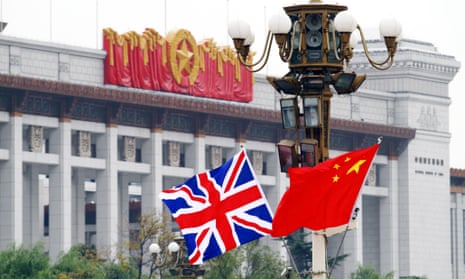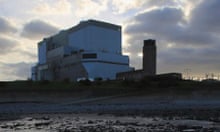Much has been written about the nuclear agreements signed at the UK-China summit. Given the boost to low-carbon electricity, to energy security and to jobs, the Chinese interest in taking forward investment at Hinkley Point C, the UK's first nuclear station in a generation – is hugely welcome.
But equally important is that both China and the UK recognise that climate change is one of the greatest global challenges we face. For the first time ever, the UK and China have released a joint statement, committing our governments to work even more closely together on a response to climate change.
It’s important because it is only the second time China has done this. The only other country with which China has agreed a statement on climate change is the US. This statement reflects the strength of our cooperation with China on climate change and low carbon.
The science tells us that urgent action is needed. The recent flooding in the UK is testament to the devastation that climate change could bring to our daily lives. Climate change is putting pressures on the resources we need to survive: water; agricultural land; food. To combat this, we are investing in low carbon and energy efficiency technologies, with an increased focus on homegrown renewables, to reduce our reliance of foreign imports and create a sustainable supply of affordable energy for consumers and businesses alike. But Britain cannot solve climate change alone.
It is well known that China is now the world’s biggest emitter. But when I visited China last year I saw for myself the extraordinary effort being made to tackle greenhouse gas emissions and to curb air pollution. China is taking rapid action to reduce dependence on coal. Coal is now around 65% of the energy mix compared to 70% in 2010 and massive investment in clean energy and in energy efficiency is underway.
Two weeks ago the US president, Barack Obama, announced new plans to regulate carbon from power plants. This means the world’s two largest emitters are now taking aggressive action to avoid dangerous climate change. The low-carbon progress in China deserves greater recognition. As well as being the biggest emitter, China is also the world’s largest investor in the global clean energy transition.
People are quick to be cynical about international efforts to limit global warming but the fact of the matter is that there is no other option but to agree an ambitious deal in Paris next year.
Britain is working with like-minded European countries and pushing for an ambitious EU energy and climate change package that will lead to a 40% reduction in greenhouse gas emissions by 2030 and will take us on the next step to tackling climate change. This will help promote the long-term investment we need to drive down the cost of clean technologies. A credible and effective response to climate change - which protects future generations from an unacceptable level of risk - needs the involvement of all countries.
We have been developing an ever closer relationship with China on climate change for many years which has led to collaboration on carbon trading, offshore wind development, on low-carbon buildings, on nuclear energy, and on carbon capture and storage – to name just some of the ways in which we’re working together.
The UK and China are obvious partners in this challenge. Our strengths lie in bringing together UK’s broad science base and our experience, with China’s enormous scale and ability to innovate low-cost solutions. By working together, we can turn the tide of climate change and protect future generations.








